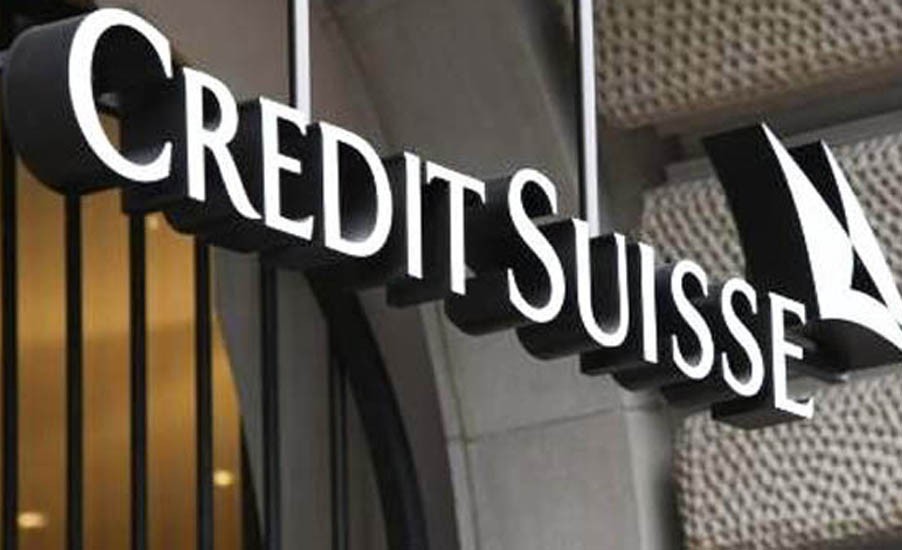NEW YORK
 A Hong Kong bank agreed to pay a $47 million criminal penalty for being involved in a corrupt scheme to win banking business by giving jobs to friends and family of Chinese officials, according to officials.
A Hong Kong bank agreed to pay a $47 million criminal penalty for being involved in a corrupt scheme to win banking business by giving jobs to friends and family of Chinese officials, according to officials.
“Credit Suisse (Hong Kong) Limited engaged in a corrupt scheme to win business with Chinese state-owned entities by hiring friends and family of Chinese government officials, generating the bank at least $46 million in profits,” said Acting Assistant Attorney General of the Criminal Division John P. Cronan. “These ‘relationships hires’ often lacked necessary technical skills, and offered fewer qualifications and significantly less relevant banking experience than other candidates for the jobs. The Department of Justice remains steadfast in our commitment to combatting bribery and corruption in all its many forms, including where companies engage in corrupt hiring practices to gain the favor of foreign officials to generate improper business advantages and increase profits.”
According to Credit Suisse’s admissions, between 2007 and 2013, several senior bank managers in the Asia Pacific region engaged in a practice to hire, promote and retain candidates referred by or related to government officials and executives of clients that were state-owned entities.
The employment of these “relationship hires” or “referral hires” was part of a quid pro quo with the officials who referred the candidates for employment, whereby Credit Suisse bankers sought to and did win business from the referral sources. Employees of other subsidiaries of CSAG were aware of the referral hires and facilitated the conduct.
“Credit Suisse Hong Kong’s practice of employing friends and family members of Chinese government officials as a quid pro quo for lucrative business opportunities was both profitable and corrupt, and now the company will pay the price for that corruption,” said U.S. Attorney Richard Donoghue of New York. “This Office is committed to holding companies that conduct business in the United States accountable when they or their subsidiaries corruptly influence foreign government officials for financial gain.”
According to admissions made in connection with the resolution, Credit Suisse bankers discussed and approved the hiring of close friends and family of Chinese officials to secure business for the bank.
For example, one state executive emailed a senior banker to refer a candidate who had a “very good and close relationship” with senior management at the state-owned entities, and wrote that hiring the referral hire would “bring [CSHK] the big surprise in the near future if [CSHK] could … arrange a position in CS team in Beijing.”
The senior banker later told a colleague about an impending deal that the state entity was pursuing and explained that the referring state official “was focused on having us make a relationship hire and said it was very important for us to win future business with [the SOE].” In another email to colleagues, a CSHK employee explained that “[r]elationship hires have to translate to $” or “the relationship is worthless to our organization.”
Banker further admitted that referral hires were less qualified than other employees hired at the same level but given less stringently vetted and they were given benefits throughout the course of their employment due to the provision of business to Credit Suisse by their referral sources.
For example, during the interview process for one referral hire, a senior banker cautioned colleagues “not too many interviews,” as this referral hire was “a princess [who was] not used to too many rounds of interview.”
Bank employees also noted that they had to “be a bit ‘creative’ in filling” in this referral hire’s resume, before sending it to other CSHK employees. In another example, when a CSHK banker asked a high-ranking executive of a client SOE to “push for [CSHK’s] incentive,” the high-ranking executive “reminded [the CSHK banker] that [CSHK] need[ed] to pay [the SOE’s] relationship hire … well at the year-end bonus.”
The corrupt scheme netted Credit Suisse at least $46 million in profits from business mandates with Chinese SOEs, CSHK admitted.
The Department and Credit Suisse entered into a non-prosecution agreement, and the bank agreed to pay a criminal penalty of $47,029,916 to resolve the matter.
As part of the deal, Credit Suisse and its parent company Credit Suisse AG also decided to continue to cooperate with the Department in any ongoing investigations and prosecutions relating to the conduct, to enhance their compliance programs and to report to the Department on the implementation of their enhanced compliance programs.
The Department reached this resolution based on many factors, including that Credit Suisse did not voluntarily and timely disclose the conduct at issue. Credit Suisse received partial credit for its and its parent company’s cooperation with the criminal investigation, including making foreign-based employees available for interviews in the United States and producing documents to the government from foreign countries in ways that did not implicate external data privacy laws.
However, CSHK did not receive additional cooperation credit because its cooperation was reactive and not proactive. Additionally, CSHK did not receive full credit for remediation because it failed to sufficiently discipline employees who were involved in the misconduct.
Based on these considerations, the company received a non-prosecution agreement and an aggregate discount of 15 percent off the bottom of the U.S. Sentencing Guidelines fine range, according to officials.
In related proceedings, Credit Suisse Group AG also settled with the U.S. Securities and Exchange Commission or SEC. Under the terms of its resolution with the SEC, Credit Suisse Group AG agreed to pay a total of $24,989,843 in disgorgement of profits and $4,833,961 in prejudgment interest.

